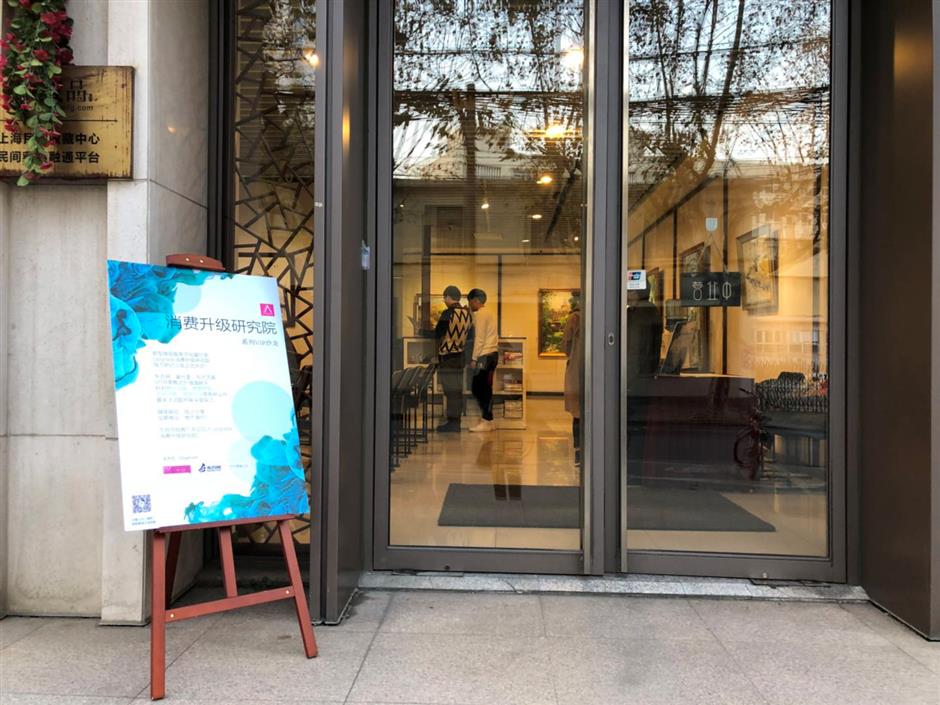New retail project predicts consumer trends in digital age

East Gallery of Eastday.com is an art space that dedicated to art and cultural exhibitions and events.
A monthly salon event was launched this week in a bid to bring together retail industry insiders to discuss trading up topics.
Consumption Upgrade Salon focused on the influence of digitalization trends and cultural upgrades on traditional retailing industry.
The meeting was held at East Gallery, an art space of Eastday.com, dedicated to art and cultural exhibitions and events. It is a cooperation between Eastday.com, art and technology consulting platform Top Tier, and its affiliated Consumption Upgrade Research Institute, and a new retail consulting company, More Than Retail.
A new consumption shopping omnichannel, which combines online with offline patterns, will be the first trend of this consumption transformation. A report from McKinsey & Co pointed out that a redefinition of customer experiences is under progress, in which 85 percent of Chinese consumers have become omnichannel shoppers, and they would expect more enhanced customer experience, said Terry Tian, who opened the event as a special expert of the Consumption Upgrade Research Institute of Top Tier.
In the field of traditional industries, because of the transformation of consumption demand, concept and custom resulting from technological innovation and cultural revival, consumers are no longer satisfied with a simple consumption scenario, added Tian, CMO of More Than Retail.
“With the influence of new retail, consumption scenarios have been constantly developed and upgraded, which forms the pattern we called O2O2O (online to offline to online). Customers are now getting increasingly smarter and their reliance on the Internet could also drive offline merchants to produce more high-quality products,” said Vincent Wang, head of insights of UM, affiliate to IPG group.
Cyrus Lum, the founder of CleverRobotLabs, which provides technological scenario services such as AR, for traditional industries, shared with audience that AR technologies creates a virtual dimension in reality, offering more opportunities for traditional operations, such as shopping malls and art galleries because they can stimulate a sense of participation and feeling.
“Immersive customer experience is essential for certain consumers transforming from collectivism to individualism. In the future there is a high chance that AI (artificial intelligence) housekeepers would be available, which could constantly learn and accumulate data and provide professional suggestions for customers at any time,” Cyrus added.
Chong Ni, senior project executive from Kantar Added Value, believes that the key of trading up is in upgrading consumers’ concepts. Chinese consumers are constantly embracing new social concepts and technologies and renewing their understanding of experience, aesthetic appreciation and lifestyle. The everlasting change of cultural context and content in China’s society is also affecting the concepts of customers. Under the condition that consumers no longer only focus on brands, cultural strategies can help with interpreting present cultural phenomenon and predicting cultural trends.
Representatives from Becky’s Premium, La Grave Chateau, Bordeaux, France, technical executive officers from international famous fast-food brands, managers from international jewellery brands and directors from scientific and technological industries, all participated in the event and they shared their opinions on trading up too, such as future scenes of digital restaurants, online and offline marketing strategies and product upgrade.















